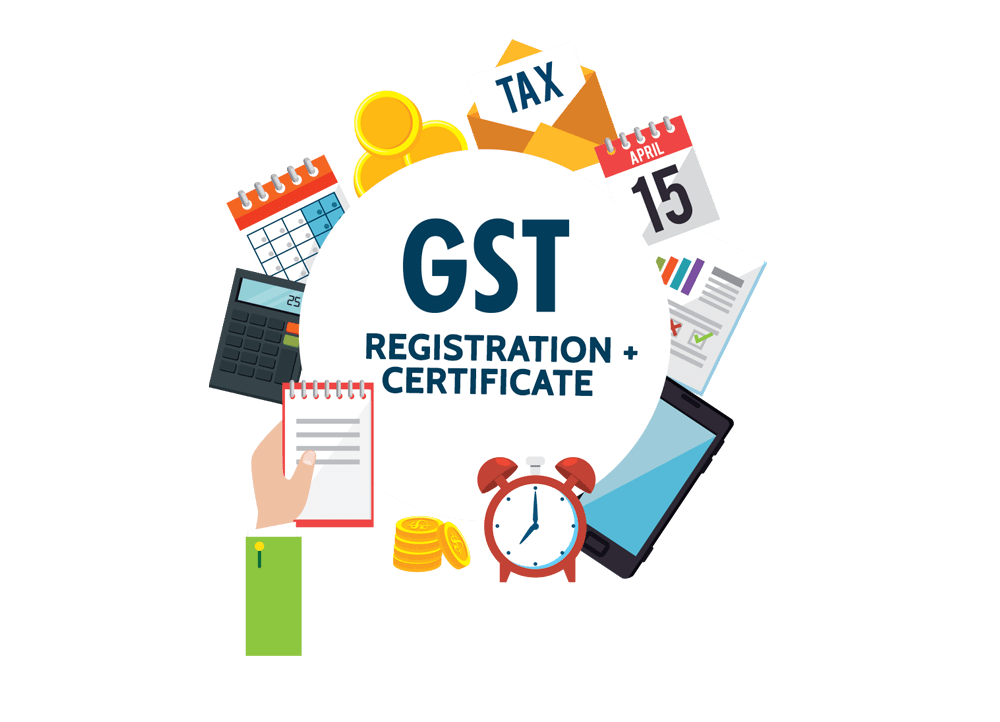Singapore GST Registration: What You Need to Know Before Using
Singapore GST Registration: What You Need to Know Before Using
Blog Article
The Ultimate Guide to Simplifying the GST Registration Process and Needs for Small Company Owners

Understanding GST Fundamentals
To comprehend the principles of the Item and Solutions Tax Obligation (GST) system, little service proprietors should initially comprehend its underlying implications and principles. Under the GST regimen, organizations are called for to register and collect tax obligation on part of the federal government, making sure openness and conformity.
One of the essential principles of GST is input tax credit score, which permits businesses to assert credit report for tax obligations paid on their acquisitions. This system stops the cascading impact of taxes and promotes performance in the tax obligation system. Additionally, GST is a destination-based tax obligation, suggesting that the tax obligation is imposed at the point of intake instead of the factor of beginning. This makes certain fair distribution of tax obligation revenue among states based upon where the solutions or products are consumed. Comprehending these basic principles is vital for small company proprietors to navigate the complexities of the GST system and ensure compliance with the law.
Qualification Standards for Registration
Having actually developed a fundamental understanding of GST principles, small organization proprietors have to now satisfy specific qualification standards to continue with the registration procedure. In India, entities participated in the supply of products or services with a yearly accumulation turn over going beyond Rs. 40 lakhs (Rs. 10 lakhs for unique classification states) are called for to sign up for GST. Furthermore, specific services such as those involved in inter-state supply of items, laid-back taxed individuals, and those called for to pay tax obligation under the reverse cost mechanism need to sign up for GST regardless of their turn over. Businesses that were signed up under the previous tax obligation program (VAT, solution tax obligation, and so on) are additionally mandated to register under GST. Farming organizations that just provide generate out of primary manufacturing are exempt from GST registration. It is crucial for company owners to carefully assess their qualification based on these criteria to make certain conformity with the legislation and prevent any penalties for non-compliance.
Papers Needed for GST Registration

Simplified Enrollment Process Steps
Complying with the collection and confirmation of the requisite files, the enrollment process for GST can be navigated through a collection of simplified actions created to assist in effective compliance for local business owners. The initial step involves going to the GST site and picking the 'New Registration' choice. Consequently, the candidate has to fill out Part A of the GST REG-01 type with details such as frying pan, mobile number, and email address to get an OTP for verification. As soon as the his response OTP is obtained and entered, a Temporary Referral Number (TRN) is produced for further procedures. The following step calls for filling out Component B of the form with needed company information, submitting sustaining files, and finishing the confirmation process utilizing DSC or EVC. Ultimately, upon effective confirmation, an Application Reference Number (ARN) is released, showing the conclusion of the GST enrollment procedure. By adhering to these streamlined actions, tiny business proprietors can properly register for GST and guarantee conformity with tax obligation policies.
Tips for Ensuring Compliance
To maintain regulatory adherence and operational honesty, attentive oversight and proactive steps are crucial in ensuring conformity with GST needs for local business proprietors. Small company proprietors need to remain upgraded with GST guidelines, submitting deadlines, and any type Get More Information of adjustments in tax obligation rates to stay clear of penalties and maintain an excellent standing with tax obligation authorities. One essential idea for conformity is to keep accurate and comprehensive documents of all deals, including costs, invoices, and invoices associated with GST. Consistently fixing up monetary documents with GST returns can aid in recognizing and remedying any kind of inconsistencies immediately. In addition, performing periodic internal audits or seeking professional support can make sure that the company is following all GST policies appropriately. It is likewise essential for small organization owners to invest in GST-compliant accountancy software program that can improve the tax declaring process and reduce mistakes. Going to GST recognition workshops or training programs can improve understanding and compliance with GST guidelines, eventually benefiting the company in the lengthy run.
Final Thought
Finally, small company owners have to comprehend the essentials of GST, satisfy the qualification criteria, collect required records, and follow the streamlined enrollment process actions to guarantee compliance. By streamlining the GST enrollment procedure and requirements, tiny organization proprietors can avoid fines and run their companies efficiently within the lawful structure - Singapore GST Registration. It is vital for local business proprietors to remain enlightened and compliant with GST guidelines to preserve a successful company operation
Tiny company proprietors seeking GST registration need to visit this web-site guarantee they gather and send the essential papers to finish the enrollment procedure efficiently. The records required for GST enrollment normally consist of evidence of business enrollment or unification, PAN (Long-term Account Number) card of the company identification, entity and address evidence of the promoters/partners/directors, photos, address evidence of the place of business, bank account statements or terminated cheques, and consent forms. Going to GST understanding workshops or training programs can enhance understanding and conformity with GST regulations, ultimately profiting the company in the long run.
By streamlining the GST registration procedure and needs, tiny organization owners can avoid fines and operate their companies efficiently within the legal structure. It is essential for small business proprietors to stay informed and compliant with GST policies to maintain an effective organization procedure.
Report this page